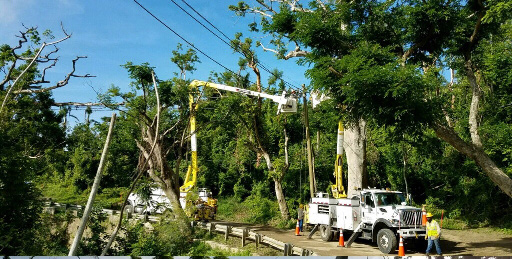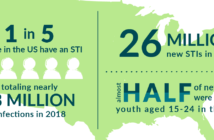[tribulant_slideshow gallery_id="227"] |
Months have passed since Hurricanes Irma and Maria hit the United States Virgin Islands; however, to this day the aftermath is still being felt ever since the two Category 5 storms rampaged through the islands September of last year.
After the devastating hurricanes, the islanders were left without electricity.
The New York Times reported that as of late December, approximately one-quarter of the territory still lacked cellphone service. However, it was not until Jan. 9, nearly four months after the hurricanes hit that 92 percent of peoples’ power was restored; however, this was a vast improvement since a month ago only half were with power. Nonetheless, Governor of the U.S. Virgin Island, Kenneth E. Mapp stated the U.S. VI still have a long way to go after Irma and Maria.
Presently, on the university campus, we have quite a few students who are from the U.S. VI, and some expressed their personal experiences on how the hurricanes affected not only them but their families back home.
Ekaila S Lindquist, a junior majoring in psychology, said, “My mother had told me how huge hotels are closed until 2019 due to the vast devastation. And, with the hotels being closed and tourism being affected, many people are left unemployed.”
“Tourism is the USVI’s main source of income. The hurricane affected that big time. My parents are both here in the States (Orlando, FL), and they have been here for the majority of my life. However, a lot of our family members are still in the VI and BVI and have been affected greatly by the hurricanes,” added Lindquist.
She then went on to explain how in the interim, people like her stepmother decided to fly family members to the United States for them to continue their education, seeing as how most schools were closed due to infrastructural damage.
“My stepmother has family who came to the states and are staying with her and my dad because the schools have been damaged to the point that they can’t be open as of now,” said Lindquist. “My stepmother’s cousin doesn’t want her children to have to repeat or grade or anything because they would be behind, so she flew them here (to the United States) in order to finish school.”
She also expressed, “I feel like the Virgin Islands is usually neglected and overlooked. Even news-reporters would mention Puerto Rico repeatedly, but they’d barely specifically mention the USVI if they even did at all.”
Another student, Davina Foster, a senior majoring in health care management reflects on the state of her family post-Irma.
“I do have family still on island that survived both Hurricane Irma and Hurricane Maria within a two-week span. My mother, aunts, uncles, cousins, and niece are all thankfully OK,” said Foster. “It has been hard for them adjusting, but many of them have been through something similar, but just not to that magnitude, and definitely not back to back.”
Foster said that the majority of the island has been without power since Sept. 6, 2017, but due to the hard work of both local and mainland linemen, more people are receiving power every day.
She also spoke about government efforts, in which food and supplies were provided, and blue tarps for affected roofs. And also, FEMA efforts in which the islands were offered their assistance.
Speaking on her own home on the island, Foster commented, “thankfully, my home, as well as some of my family’s homes, were only slightly damaged compared to thousands throughout all three islands, and the neighboring British Virgin Islands who lost almost everything including their homes.”
“There are a few hotels that have received so much damage that they cannot reopen until 2018, resulting in many layoffs,” said Foster. “My mother and aunt both have jobs in the tourism industry, which has been gravely affected by both storms. My aunt has been laid off. My mother has only been to work one day since the hurricanes have passed after her job finally received power.”
Foster talked about how the problems faced with phone service immediately following the hurricanes.
“I was on the phone with my mom about 12:30 p.m. Wednesday, Sept. 6, 2017, when the phone disconnected,” she recounted. “I did not hear from her until the morning of Friday, Sept. 8th, 2017. And, for her to make that phone call, she had to drive about 20- 25 minutes to find a high point to access cell service. It was the most nerve-wracking two days.”
Foster is thankful that cell service has greatly improved, and she no longer has to worry about her mom leaving her house to call her and her sister.
To this day, hospitals are still evacuating patients with serious conditions to the mainland, while schools have managed to reopen, making accommodations for time lost by students.
According to The New York Times and Jean P. Greaux Jr., communications director for the Water and Power Authority, about 3,000 of their 46,000 customers still wait for power, and an estimated 9,100 customers live in homes that need to either be rebuilt or fixed before they can be hooked up to the grid.
The New York Times reports that power crews are starting to repair streetlights, and even though the government was hammered with massive debt before the storms, they are pushing to get asphalt plants up and running to begin paving ripped-up roads.





